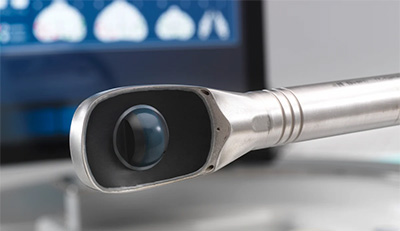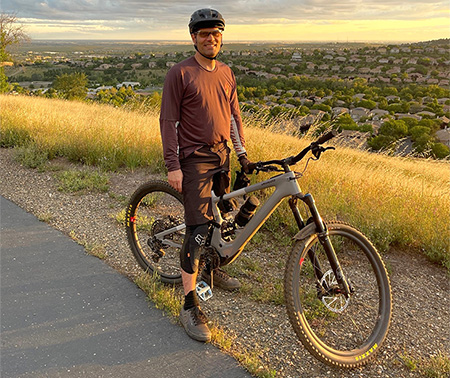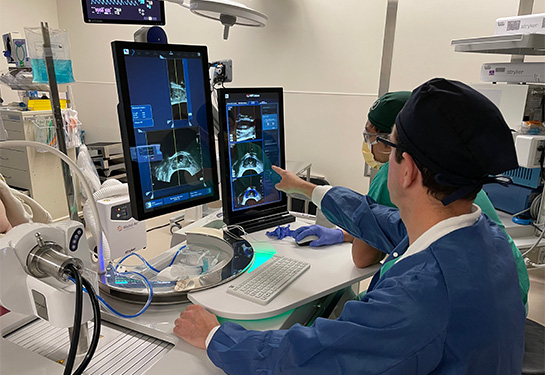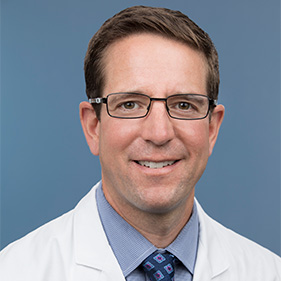Cancer center first in region with prostate cancer therapy
High-intensity focused ultrasound technique is a game changer; dramatically reducing recovery time and side effects
An estimated 1 in 8 men at some point will get prostate cancer, which is the second leading cause of death in American males. Advancements in treatment have significantly improved the odds of surviving prostate cancer, but they often come with challenging side effects such as incontinence and erectile dysfunction.

Now UC Davis Comprehensive Cancer Center is offering a leading edge, non-invasive prostate cancer procedure without a blade, an incision, a scar or any radiation. It is called high-intensity focused ultrasound or (HIFU). The idea is to avoid the risks and the side effects that come with a radical prostatectomy while reducing time away from work or activities.
Sacramento man is one of the first to benefit from new treatment
Jason Stokes, 53, is younger than most men diagnosed with prostate cancer, which is typically discovered in people 65 and older. Busy with work, family and outdoor activities such as mountain biking and skiing, the idea of avoiding major surgery was appealing.
“For me, it was a no-brainer,” Stokes said. “I’d get the peace of mind that comes with treating the cancer, while avoiding the side effects of a prostatectomy and the risks of receiving radiation therapy.”
An estimated 80% of early-stage prostate cancer patients who undergo HIFU, will not need additional treatment. The robotic platform, developed by Focal One, ablates prostate tissue by focusing high-intensity ultrasound waves only on the affected area, causing localized heating that destroys the cells in the gland without damaging the healthy surrounding tissue.

“The technique is like sunlight passing through a magnifying glass. It is concentrated at one point resulting in a significant temperature increase around the targeted focal point,” said Acting Chair of the Department of Urologic Surgery Marc Dall’Era.
The outpatient procedure takes less than two hours and patients can return to work and normal activities within a week. Conventional surgery to remove the entire prostate typically requires an overnight stay in the hospital and a recovery of six weeks or more.
Stokes underwent the procedure on a Friday and said he could have gone back to work the following Monday, although he had already planned to take two additional days off for recovery.
“I was mountain biking within a week of the procedure and skiing with my family a week after that,” he added.
Stokes was fortunate that his cancer was caught early, which made him a good candidate for the HIFU procedure. It was discovered by his primary care physician who noticed a lump during a routine digital exam. Even though a blood test indicated his prostate-specific antigen (PSA) levels were not alarmingly high, a biopsy showed an early prostate cancer that was also visible on MRI.
“I kept thinking to myself, ‘Why can’t they just beam it out?’” Stokes said. “When Dr. Dall’Era explained the HIFU technique I thought, ‘This is the closest we’re going to get to that.’”
We are excited to be the first in the region to offer this unique prostate cancer treatment.”—Marc Dall’Era, Acting Chair, UC Davis Department of Urologic Surgery
Procedure is less invasive, less risky and less expensive
Stokes will need to undergo PSA blood testing at three, six, and twelve months as well as an MRI scan. Potentially, follow-up biopsies will be completed at one year to assess the full outcome of the procedure.

“We are excited to be the first in the region to offer this unique prostate cancer treatment,” Dall’Era said. “Men like Jason can go on with their lives and not play the waiting game as they put off a radical prostatectomy. Essentially, HIFU is less invasive, less risky and, ultimately, less expensive, than conventional surgery. Most importantly, it preserves quality of life.”
Stokes wants other men with early-stage prostate cancer to talk to their doctor about treatment options.
“I’m lucky UC Davis Health recognized me as a person and not just as a patient,” Stokes said. “Everyone from the doctors to the nurses and the administrative staff are so great. They were supportive of my lifestyle and goals, helping me weigh the alternatives and even helping to navigate insurance to make it all happen.”
UC Davis Comprehensive Cancer Center
UC Davis Comprehensive Cancer Center is the only National Cancer Institute-designated center serving the Central Valley and inland Northern California, a region of more than 6 million people. Its specialists provide compassionate, comprehensive care for more than 100,000 adults and children every year and access to more than 200 active clinical trials at any given time. Its innovative research program engages more than 240 scientists at UC Davis who work collaboratively to advance discovery of new tools to diagnose and treat cancer. Patients have access to leading-edge care, including immunotherapy and other targeted treatments. Its Office of Community Outreach and Engagement addresses disparities in cancer outcomes across diverse populations, and the cancer center provides comprehensive education and workforce development programs for the next generation of clinicians and scientists. For more information, visit cancer.ucdavis.edu.





